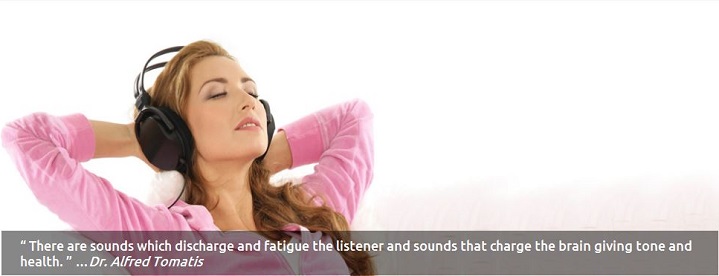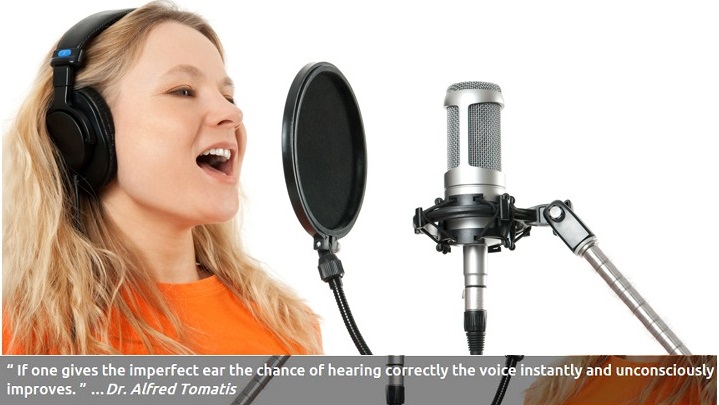Positive Health Online
Your Country

The Listening Centre - London
London UK Centre for Tomatis Listening Therapy
![The Listening Centre - London [Image: The Listening Centre - London]](/img/original/Therapist/1420.41bf11b1878728e825b0c2349d106cd9.jpg)
- Company
- Listening Centre (London)
- Address
- London N5 1FY
- Contact
- Ella Williams
- Telephone Number
- 020 7359 5268
- listeningcentrelondon@gmail.com
- Website
- www.tuneyourears.com
The Listening Centre, London was established by Ella Williams in May 2001. Apart from singing she also performed as an actress in Vienna and gave the first German language performance of Copi's Madame Morti. Ella first became aware of the work of Dr.Tomatis whilst performing in Strauss's "Elektra" at the Sydney Festival in 2000. Ella brings to the therapy a lifetime of experience from the stage and in particular the correct technical use of the voice.
Fascinated by what she read, she resolved to take a course of therapy in the pursuit of an ever more perfect presentation as a singer and performer, but what followed changed her life fundamentally.
Resolving to learn more about the therapy, rather than just to undergo its powerful effects, she studied to be a therapist at the Alfred A.Tomatis Foundation. Professor Tomatis founded this Institute in England in the 1990s after distancing himself from the older continental centre in Paris.
The therapy known as Tomatis Listening Therapy, is also well known for treating; dyslexia, dyspraxia, learning difficulties, autism, brain-damage, vertigo, Meniere's disease, depression and the aftermath of strokes. It is also used by many pregnant women as an aid for relaxation, better sleep and relief from backache.
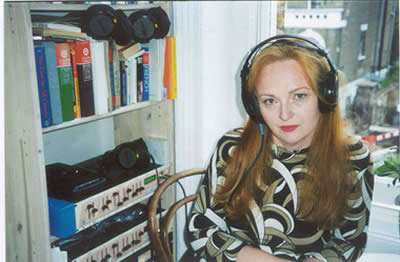
Ella Williams
Ella's direct experience of the change the Tomatis Method made in her own vocal production is best summarised in Tomatis's own words, "we sing with our ears". For Ella, the foundation of any career in which effective communication plays an important role, is based on correct listening.
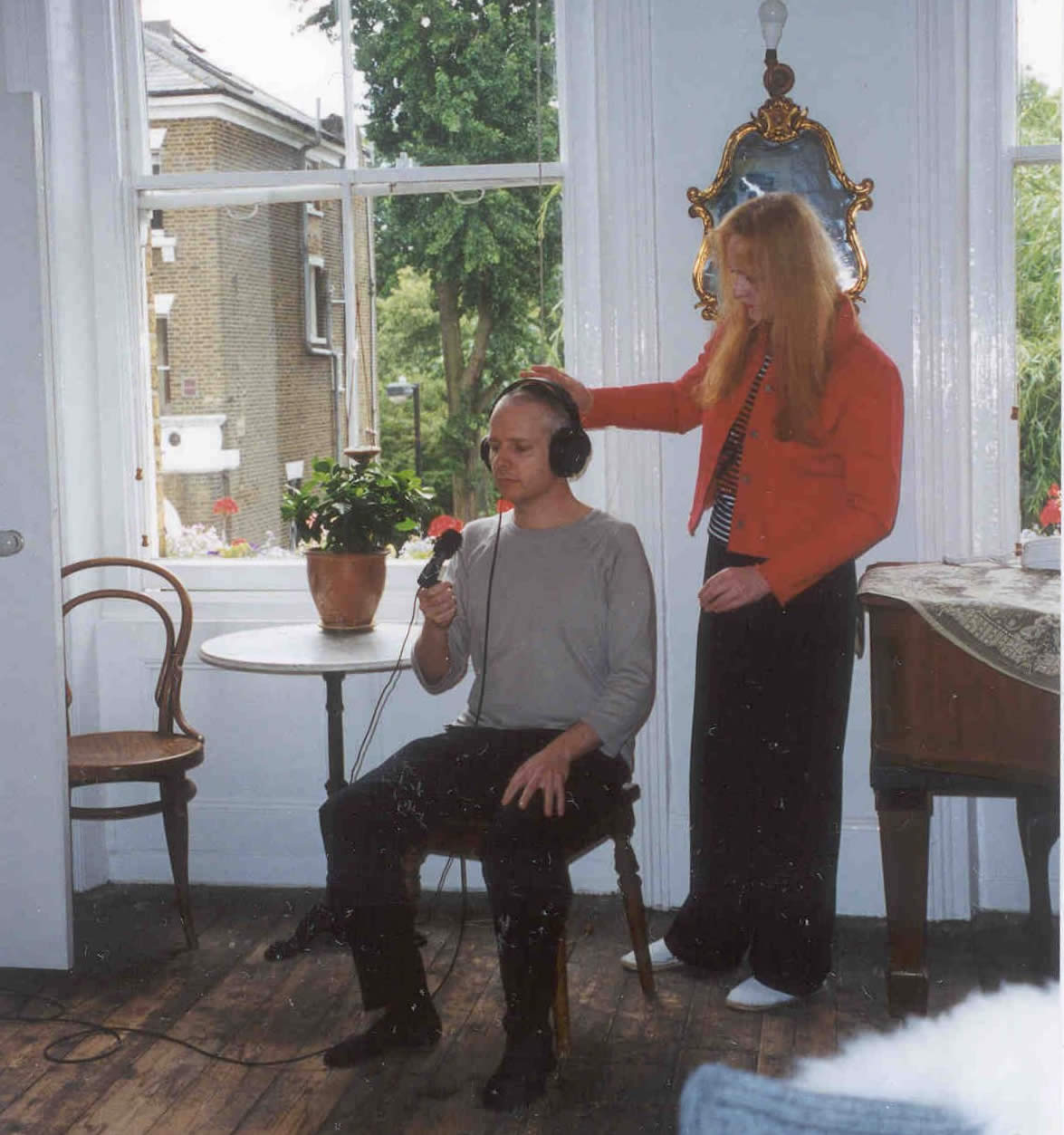
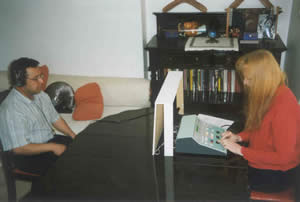
There is an ideal listening posture which optimizes our listening ability. Listening Test A.
Because of Ella's background, the Listening Centre, London, deals with the voice, music, language and sports. The centre has to date (December 2002) treated successfully; actors, musicians, singers, golfers, barristers, public relations executives, public speakers and teachers. Although Ella is a classical singer, she deals with all forms of singing and music; popular, new-age and musical, as well as classical, but she derives the greatest pleasure in teaching those to sing who always thought it was impossible for them to do.
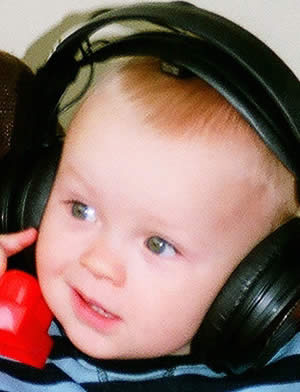
Baby J
The Listening Centre, London, is open six days a week from 8.30am to 9.00pm and its nearest tube connections are Highbury and Islington on the Victoria line (one stop north of Kings Cross) and Arsenal on the Piccadilly line.
Dyslexia Speech Delay Hypersensitive Hearing
Contact Us
Listening therapy is one of the best-kept secrets in the performing arts. Maria Callas, Beniamino Gigli and Gerard Depardieu have all been clients of Professor Tomatis. But it is not only performers who can benefit from the treatment - all those who rely on vocal skills from politicians to salespeople can add interest to their speaking voices and language students can learn to listen in to the distinct ethnic frequencies of the language they are learning. Every language has its own range of frequencies and the so-called "ear for languages" is nothing more than the receptivity of the ear to these frequencies. As we grow older our receptivity "ossifies" into our own familiar language, but by filtering in the required frequencies we can regain .
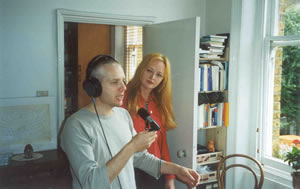
This client learns to sing with the full frequency of his voice.
The change in listening pattern is brought about by treatment with an electronic listening device that filters selected frequencies of sounds thereby exercising muscles within the ear that have lost the ability to respond to certain sounds. Returning these muscles to condition the ear becomes more receptive and following this the production of sound alters as well. The course is intensive and the results can be permanent - unlike coaching and other discursive procedures the therapy is not geared towards learning a technique or method but works gently and without rote learning of any sort. During the active sessions clients listen to the music of Wolfgang Amadeus Mozart and Gregorian chant. Mozart because of the abundance of high frequencies which charge the cortex of the brain and Gregorian chant because it has the full scale of harmonics and matches the relaxed rhythm of the human heartbeat. Later on the client will chant, sing and speak with their own voice filtered back to them so that they listen to themselves with the full spectrum of sound that they do not normally project.
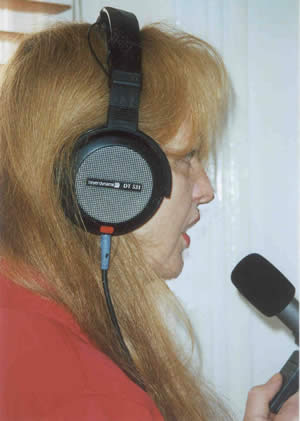
Working with the microphone. The client's voice is filtered back
with the expanded frequency range they do not normally hear.
Professor Alfred A.Tomatis, who as long ago as 1957 was honoured by the French Academy of Science with the acknowledgement of the "Tomatis Effect", which reduced to a one line nutshell is - you can only produce sounds that you are able to hear - This means that any change in our listening patterns leads to an immediate change in our speech, singing or even instrumental production.
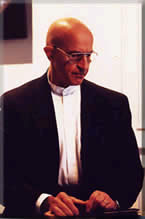
Alfred Tomatis was born on the first of January 1920. Son of a well-known operatic baritone from Nice and an Italian mother he studied medicine in Paris before, during and after the Second World War. A combination of research into the occupationally deaf for the French Government and his own private practice as an ear, nose and throat specialist with musicians and singers led him to a series of discoveries about the nature of hearing and listening.
During the 1950s the first Electronic Listening Devices were developed and in 1957 the French Academy of Science and Medicine recognised the "Tomatis Effect" and the three "Laws of Tomatis". Professorships and honours followed and at the time of his death on Christmas Day on 2001 he had established Listening Centres for the Tomatis Therapy in more than 200 locations worldwide.
The therapy known as Tomatis Listening Therapy, is also well known for treating; dyslexia, dyspraxia, learning difficulties, autism, brain-damage, vertigo, Meniere's disease, depression and the aftermath of strokes. It is also used by many pregnant women as an aid for relaxation, better sleep and relief from backache.
At the Listening (Voice, Music & Language) Centre, London, we use the original Tomatis programme with analogue sound. Analogue sound is complete sound without the tiny gaps that are the hallmark of digital sound. Digital sound is unnatural and “deadens” the harmonics, losing richness. Also in accord with the original vision of Professor Tomatis, microphone work is an essential part of the course, providing full integration between the ear and the voice. We provide a comfortable, non-clinical environment where clients may explore their own creativity.
Tomatis left an autobiography, "L'oreille et la Vie"; published in English as "The Conscious Ear", in which his life and discoveries, triumphs and trials are transformed into a rivetting narrative.
